“I just call it the cost of living. The cost of living has been to go through some things, but I did live, and I have to keep on living because my kids still need me.”
Nicole
Nicole still remembers when she received the news with the vivid clarity of a flashbulb memory. She was at home with her two daughters, 7-year-old Jade and newborn Talah, on Feb. 20, 2009. When her dentist came to her house at about 4:30 that afternoon, she assumed he wanted to congratulate her on her new baby, born just days before. Instead, he was crying. He told her she had chondroblastic osteosarcoma — or osteosarcoma of the jaw — his first encounter with an osteosarcoma diagnosis in 25 years of practice. Nicole held Talah in her arms as he explained that she probably wouldn’t make it and advised to get her affairs in order.
Shocked though she was by the diagnosis, Nicole refused to accept his grim words as inevitable.
“It never occurred to me that I would die or could die,” she says. “You have to put it out of your head. You realize that you don’t control everything but, still, as much as possible, you fight for yourself and your health.”
Six days later, Nicole had a six-hour maxillectomy to aggressively treat her osteosarcoma of the left maxilla, or jawbone. The operation removed much of her maxilla, jaw, seven teeth and two lymph nodes. Skin grafts transplanted skin from her wrist to her face and from her leg to her wrist. She spent nine days in the hospital. Soon after she healed from surgery, her chemotherapy treatments began.
Time and again during her six rounds of intensive in-patient chemotherapy, Nicole wanted to quit. In round one, an unexpected infection led to a three-day ICU stay. Round three left her so weakened that only a blood transfusion allowed her to continue. Thankfully, cannabis calmed the debilitating nausea and vomiting she experienced as side effects of her
Doxorubicin and Cisplatin regimen. She also found some comfort in one doctor’s words of advice: “There will be lots of stops and doors to go through. Focus on the next stop and the next door. That’s it.”

A Different Outlook
Thirteen years have passed since Nicole received her osteosarcoma diagnosis. Her daughters are now 20 and 13, and she has been cancer-free for more than a decade.
She has made a number of life changes in that time: going vegan and adhering to a sugar-free diet, ending her marriage, pulling herself out of debt over the course of 12 years. She’s fitter than ever, playing tennis and other sports, and declares, “I’m 52 and I feel better than I did in my twenties.” She has dived deep into interests like Zen Buddhism, studying Arabic and Sanskrit, and practicing yoga.
“Yoga helps so much mentally,” Nicole says. “When I started doing yoga, that’s when I didn’t need cannabis anymore. I could feel myself coming back together.” After six months of daily yoga, she regained upper body strength and flexibility in her shoulders, which she couldn’t use for a long time after chemo. Elated by how much stronger she could feel herself becoming, she earned her yoga teacher certificate and taught classes at a local studio.
“I appreciate things a lot more,” Nicole says of how her perspective changed after her osteosarcoma diagnosis. “Very simple, small things, like birds singing and flowers coming up.”
When Nicole started chemotherapy over Easter weekend in 2009, she watched the world burst into life around her as she felt sicker and sicker.
“Now I get a chance to be in spring anytime,” she says. “I don’t have another chemo appointment that I have to think about.” A sweetness, a sense of celebration, accompanies every spring, knowing that for so many people, spring may not come again. Having known many patients who died, she says, “I do feel like I had a second chance.”
Reflecting on her experience, Nicole says, “I just call it the cost of living. The cost of living has been to go through some things, but I did live, and I have to keep on living because my kids still need me. Sometimes I have to remind myself about the cost of living to keep going. If you overcame that, you can overcome anything.”
Read more stories about the people powering OSI in The Frontline, our monthly newsletter. Click here to subscribe.
